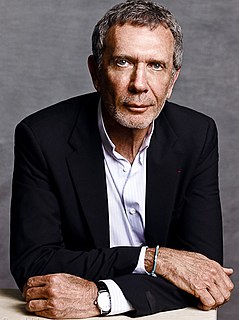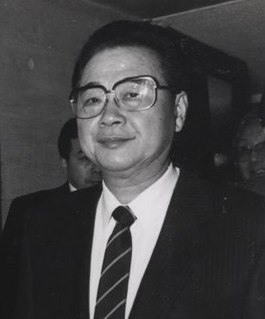A Quote by Hu Shih
For all the social changes in China can be traced to their early beginnings in the days when the new tools or vehicles of commerce and locomotion first brought the Chinese people into unavoidable contact with the strange ways and novel goods of the Western peoples.
Related Quotes
A lot of Americans desperately want to believe that China is full of poor people who can't innovate, and the only goods they make are cheap, toxic rip-offs our Western brands. They want to believe the only reason the Chinese economy is surging is because the West wants cheap goods and China knows how to make them that way.
On the mission I brought a flag from China, I brought the stone sculpture from Hong Kong, and I brought a scroll from Taiwan. And what I wanted to do is, because as I was going up and I am this Chinese-American, I wanted to represent Chinese people from the major population centers around the world where there are a lot of Chinese people. And so, I wanted to bring something from each of those places and so it really wasn't a political thing and I hope people saw it that way. I was born here, I was raised in the U.S., and I'm an American first, but also very proud of my heritage.
The development of science has produced an industrial revolution which has brought different peoples in such close contact with one another through colonization and commerce that no matter how some nations may still look down upon others, no country can harbor the illusion that its career is decided wholly within itself.
Considering all the different ways in which China has interacted with the world in the last 50 years, considering all the challenges ordinary Chinese people have to put up with, it's beneficial and, and, by any rational standard, non-threatening to have national energies channeled into this kind of competition. It's touching to see so many ordinary Chinese crowds cheering for their new heroes.
These ways to make people buy were strange and new to us, and many bought for the sheer pleasure at first of holding in the hand and talking of something new. And once this was done, it was like opium, we could no longer do without this new bauble, and thus, though we hated the foreigners and though we knew they were ruining us, we bought their goods. Thus I learned the art of the foreigners, the art of creating in the human heart restlessness, disquiet, hunger for new things, and these new desires became their best helpers.
The Soviet Union was brought down by a strange global coalition of Western European conservatives, Eastern European nationalists, Russian liberals, Chinese communists, and Afghan Islamic reactionaries, to name only a few. Many of these discordant groups disliked the United States intensely. But Americans were able to mobilize them to direct their ire at the Soviet Union first.
I think China thinks information technology is less important than we think it is in the US, economically, and more important politically. And so Chinese internet companies are extremely political, they're protected behind the great firewall of China, and investment in Alibaba is good as long as Jack Ma stays in the good graces of the Chinese communist party. Alibaba is largely copying various business models from the US; they have combined some things in interesting new ways, but I think it's fundamentally a business that works because of the political protection you get in China.
The biggest novelty of 2013 will be new leadership in China. Very little is known about the views of the new leaders - who will rule the country for ten years. But we do know they're the first generation of Chinese leaders who have spent the majority of their lives in a China 'opening up' to the rest of the world.









































